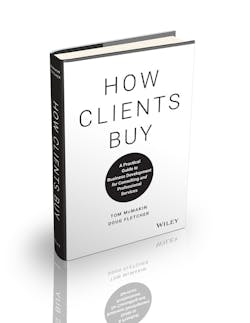Ask someone to name a take-and-bake pizza store, they will name Papa Murphy’s. Ask them to recommend a hardware store and they will tell you, “Ace is the place.” Each of these names are well known because they are part of a niche market and therefore have a permanent spot in consumers’ minds.
In order for clients to buy from you, not only do they have to be aware you exist but they also have to have a good sense of what you do. If they do not, they can’t build a bridge from their problems or needs to you and your business.
Successful business owners know this and do two things consistently: they find a niche for what they do and they are able to articulate what they do, who they serve, and how they’re unique in a short, pithy sentence—a so-called elevator pitch. Do these two things well and people will not only understand what you do but they will also remember you later when they need your services or when someone asks them for a recommendation.
Creating a Niche
The foundation on which niches are built is a handful of meta-categories we carry around with us all the time, like an organizer into which we file the hundreds of businesses we come across every day. These meta-categories are “first,” “best,” and “biggest.”
- Who is the biggest cola company? Coca-Cola.
- Who is the fifth-biggest cola company? Don’t know.
- Who was the first president? George Washington.
- Who was the twenty-first president? Don’t know.
- Who is the best online retailer of shoes? Zappos.
- Who is the ninth-best online shoe retailer in the United States? Don’t know.
We know Coca-Cola’s name because it lives in a room called, “the largest.” Recall the room and Coca-Cola’s name floats to the surface of our mind’s vast pond.
To successfully create a niche for our businesses, we need to decide what we are good at and then define it—by geography, company size, or another quantifier—and then practice a succinct pitch in which we can truthfully say:
- “We are the first lighting warehouse store in North Carolina.”
- “We are the largest interior design firm in the Southeast focused exclusively on hospitality projects.”
- “We have been named the best interior team for six years running.”
Shrink the Pond
Want to be remembered? Find a category where you can be number one in some way.
Jackie Kruger runs marketing for the Minneapolis-based accounting and financial services consulting firm CliftonLarsonAllen. “I always tell my practice leads to ‘shrink the pond,’” she noted.
I love that phrase. It is better to be a big fish in a small pond than a small fish in an endless ocean of near competitors. When it comes to business, being undifferentiated is death. “Our company is the nation’s largest architecture firm serving the law industry” is far better than “We are a one-stop for all of your architecture needs.” You can try to be all things to all people, but you will pay a cost: No one will remember what you do, a lone voice lost in the hubbub of commerce.
A Case Study
I recently spoke with a top-25 accounting firm about business development:
- “Where are you looking to grow?”
- “We are focused on $500 million to $2 billion revenue companies.”
- “What are some projects you have done recently where you did a really good job for the clients?”
- “We have worked with two mining companies to help them install state-of-the art enterprise risk-management systems.”
- “That is a niche you could own. You could be the largest accounting firm focused on serving the mining industry.”
- “We did a good job for those companies.”
“Try that as a focus for your business development—calling on mining company CFOs and sharing with them case studies on how you have helped similar firms. You have a right to dominate that niche which will be more effective than just saying you work with big companies.”
The firm narrowed its focus and its reputation for expertise in that niche grew. Soon, the team was invited to speak at mining industry panels, had convened a best-practices roundtable for mining CFOs that meets quarterly, hired a retired mining executive as an advisor, and in general had positioned itself as the go-to accounting firm for global mining companies.
The Benefits of “Niching”
The rule is that if you can’t say you are the largest or best in a category, then you should make your market definition smaller. Shrink the pond.
Good: “We are the third-largest online furniture store in North America.”
Better: “No one sells more designer beds online than does Beds ‘R Us.”
“Niching” works because specificity attracts. If you say you are San Diego’s best bathroom designer, you will develop a name for yourself in that market. More importantly, when your potential customers get an itch to remodel, they will punch your name into their phones and beat a path to your door.
This article includes affiliate links to the author's work that may benefit interiors+sources.
